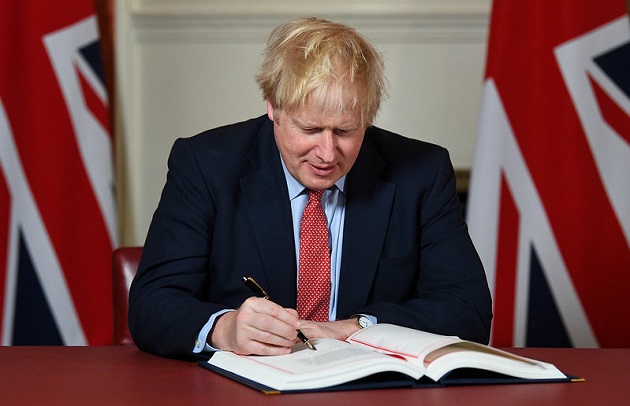UK leaves European Union after 47 years of membership
The country enters into a transition period of 11 months to negotiate free movement of people and other key issues. Christians are called to “model healing”, says the Evangelical Alliance.
BRUSSELS / LONDON · 31 JANUARY 2020 · 13:27 CET

On 1 February at 00:00 Central European Time (31 January 23:00, in Britain), the United Kingdom will officially cease to be a member of the European Union.
The day comes three years after the referendum in which 52% of voters expressed their desire to leave the European Union. Since then, a great socio-political debate has led to big division in the country.
In a recorded message to be aired one hour before the official Brexit, Prime Minister and leader of the “Leave” campaign in 2016, Boris Johnson, will say: “This is the moment when the dawn breaks and the curtain goes up on a new act. It is a moment of real national renewal and change”.
In contrast, the First Minister of Scotland, Nicola Sturgeon, said Brexit was “against the wishes of the overwhelming majority”, and said Scotland had “the prospect of a better future as an equal, independent European nation”.
A LONG PROCESS
Brexit was originally planned for 29 March 2019, but later delayed several times due to the lack of support of the UK Parliament to the withdrawal agreement with the EU negotiated by former Prime Minister Theresa May.
According to British broadcaster BBC, marches, celebrations and candlelit vigils were expected to be held by both ‘Brexiteers’ and pro-EU demonstrators on 31 January.
The leader of the Anglican Church, Archbishop of Canterbury Justin Welby, said citizens “must be united in a common vision for our country, however great our differences on achieving it”.
EVANGELICAL ALLIANCE: ‘LET’S MODEL HEALING’
One day earlier, the Evangelical Alliance United Kingdom (EAUK) posted an article commenting the issue from a Christian perspective. “Where there are broken relationships, we can model healing. Where there is despair, we can bring hope”, it said.
“Sometimes it may seem as if divisions within the church are as intractable as those outside. However, this unity is what we are called to model, and we must trust that where God calls, God equips”.
“May we move into this next phase of our national life as those telling a different story – confident in our [Christian] identity, resolute in our unity, and modelling hope. And as this new chapter in the history of our nations begins, let us start to ask, what kind of society do we want to become?”
CHANGES IN THE EUROPEAN PARLIAMENT
In Brussels, British MEPs have left the European Parliament, and the UK flag will be removed from the EU institutions.
The President of the European Commission, Ursula von der Leyen, thanked all UK citizens who have in the past “contributed to the European Union and made it stronger (...) It is the story of old friends and new beginnings now”.
But the European Union has also said it will defend the interests of its 27 member states and 450 million people. European Council President Charles Michel, for instance, said: “The more the UK will diverge from the EU standards, the less access to the single market it will have”.
The President of the European Parliament, David Sassoli, added: “We stand at a new departure for Europe. We should not forget how much stronger we are when we act together”.
UNRESOLVED ISSUES
The free movement of people, the issue of trade with Ireland (a EU member state), and the fishing policies of both the UK and the European Union, are some of the key issues still on the table that will need to be resolved before the end of 2020.
Hundreds of thousands of UK citizens living in other European countries will lose their rights as European Union citizens. Many will seek double nationality in the country they live in.
Published in: Evangelical Focus - europe - UK leaves European Union after 47 years of membership
